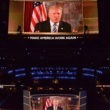As Republican presidential hopefuls race to embrace the “religious freedom” of businesses to refuse to serve the LGBT community, it’s worth taking a moment to consider the ideological history behind the laws that focused the nation’s attention on Indiana and Arkansas, and, of course, the glibly homophobic management of Memories Pizza.
Faith-based attempts to upend public accommodation laws based on the inherent sinfulness of certain others are nothing new. The civil-rights movement is underwritten by its successful refutation of the “right” of religiously premised belief systems to trump national interests in preserving equal access to civic spaces and publicly offered services. Today, we tend to think of Jim Crow’s legal barriers as merely the expression of secular prejudice. But de jure segregation reflected pervasive religious beliefs in the inequality of races and divinely commanded social order.
The case of Bob Jones University v. United States is perhaps the best-known example of the effort to assert First Amendment religious freedom of expression (in addition to freedom of association) as justification for exclusion. Until 1971, BJU had barred admission to African Americans, and offered only limited admission to other minorities. Then, in 1971, under pressure from the civil-rights movement, it began to admit only married African Americans.
Today, we tend to think of Jim Crow’s legal barriers as merely the expression of secular prejudice. But de jure segregation reflected pervasive religious beliefs.
In 1975, after further pressure, it allowed entrance of unmarried African Americans but still forbade interracial dating, and denied entry to “applicants engaged in an interracial marriage or known to advocate interracial marriage or dating.” In 1983, the U.S. Supreme Court revoked BJU’s tax-exempt status based on its racially discriminatory policies. Despite this, BJU resisted, based on assertions that God commanded separation of the races. And so it paid several million in back taxes and continued its exclusionary practices based on its freedom of expression under the First Amendment. It continued that policy until 2000, when George W. Bush kicked off his presidential campaign at BJU. The media uproar prompted its president, Bob Jones III, to nullify the ban on interracial dating, not on religious grounds, but so as not to haunt Bush’s campaign.
A second example is the 1925 case of State of Tennessee v. John Scopes. Scopes was a high school teacher prosecuted for violating the state’s Butler Act, which banned teaching human evolution in any public school. The law’s rationale was premised on fundamentalist dogma that Biblical literalism transcended all human knowledge.
That trial, best known as the “Scopes Monkey Trial,” is mostly remembered as a battle between science and pseudoscience. But it was also a battle between theological and secular justifications for notions of racial superiority. William Jennings Bryan, arguing for the creationist state law, resisted evolutionary theories that purported to teach children that mankind was descended “not even from American monkeys, but old world monkeys.” Not coincidentally, Bryan was a good friend of Bob Jones, the eponymous evangelist who founded BJU in 1927, in part because of Bryan’s urging.
While Clarence Darrow is remembered arguing on the more “liberal” side against the Butler Act, the deeper truth is that the secular beliefs of the time were not a lot better than the religious doctrine. The particular theory of evolution Scopes was accused of teaching came from Civic Biology, a textbook written by George William Hunter. Hunter believed, as many do to this day, that there were five distinct human races, representing an ascending order of evolution and civilization: Ethiopian, Malay, American Indian, Mongolian, and Caucasian. He was an enthusiastic defender of segregating each of the five, consistent with the tenets of the then-burgeoning American Eugenics Society and the theories of the infamous eugenicist Charles Davenport. Here’s an excerpt from Hunter’s textbook:
“Improvement of Man. – If the stock of domesticated animals can be improved, it is not unfair to ask if the health and vigor of the future generations of men and women on the earth might not be improved by applying to them the laws of selection. This improvement of the future race has a number of factors in which we as individuals may play a part. These are personal hygiene, selection of healthy mates, and the betterment of the environment.
Eugenics. – When people marry there are certain things that the individual as well as the race should demand. The most important of these is freedom from germ diseases which might be handed down to the offspring. Tuberculosis, syphilis, that dread disease which cripples and kills hundreds of thousands of innocent children, epilepsy, and feeble-mindedness criminal to hand down to posterity.
Parasitism and its Cost to Society. – Hundreds of families such as those described above exist today, spreading disease, immorality, and crime to all parts of this country. The cost to society of such families is very severe. Largely for them the poorhouse and the asylum exist.
The Remedy. – If such people were lower animals, we would probably kill them off to prevent them from spreading. Humanity will not allow this, but we do have the remedy of separating the sexes in asylums or other places and in various ways preventing intermarriage and the possibilities of perpetuating such a low and degenerate race.”
Darrow lost the case, and today we are still fighting about whether creationism may be taught in public schools.
Bob Jones University lost its case in the Supreme Court, but continued the battle until secular as well as religious public opinion had so shifted that it was forced to abandon its racialist policies. Perhaps Americans have reached a similar turning point regarding secular as well as religious intolerance toward LGBT communities: Indiana’s governor and Legislature met with such vehement resistance to the religious freedom law that they have been backtracking even after revising the law.
When belief carries over into action that disrupts either civil order or public safety, then public interest will outweigh even religious interests.
It was the Supreme Court’s 2014 decision in Burwell v. Hobby Lobby that gave renewed life to Indiana’s arguments that religious belief can thwart principles of public accommodation. There, a narrow majority of the court allowed a family-owned corporation to refuse to pay for insurance coverage for contraception under the Affordable Care Act, holding that to do so would violate the owners’ religious belief that contraception is a sin. It was, as Justice Sonia Sotomayor observed, “a decision of startling breadth,” reopening a century-old debate about the rights of businesses or collectives to discriminate against citizens by cherry-picking among the laws they intend to respect.
The First Amendment protects both secular expression and religious belief in very broad ways. But that protection is not absolute. When belief carries over into action that disrupts either civil order or public safety, then public interest will outweigh even religious interests. We constrain, by law, expressions that communicate fraud, threats, conspiracy, treason, or second-class citizenship—even when those expressions are underwritten by religious beliefs. It is never an easy balance, but one we need to negotiate endlessly as an part of our political process: We are entitled to our beliefs no matter how wild or unsubstantiated, but not to impose them as obstacles or dangers to the constitutional rights of others. This much is a foundational value of public accommodation. We abandon that project at our peril.
Patricia J. Williams is a law professor at Columbia University and a regular columnist for The Nation.





Fantastic items from you, man. I have be mindful
your stuff previous to and you’re just extremely great.
I actually like what you have received here, certainly like what you’re stating and the way by which you assert it.
You are making it entertaining and you still care for to
keep it smart. I can’t wait to read much more from
you. That is actually a terrific site.